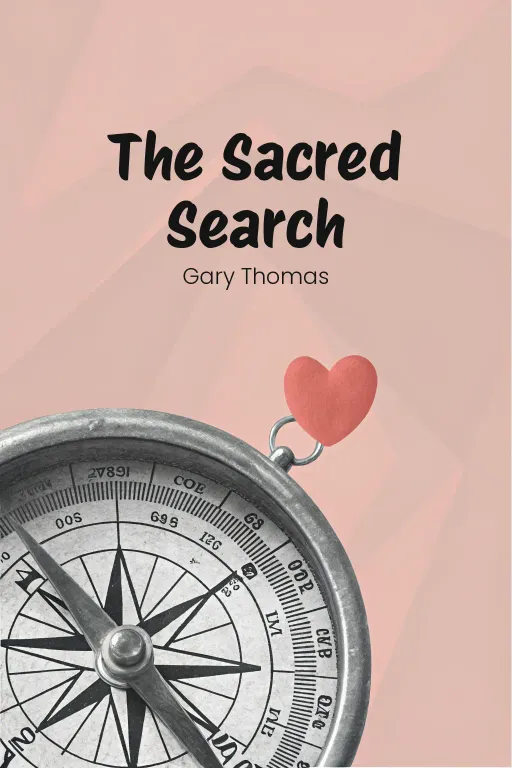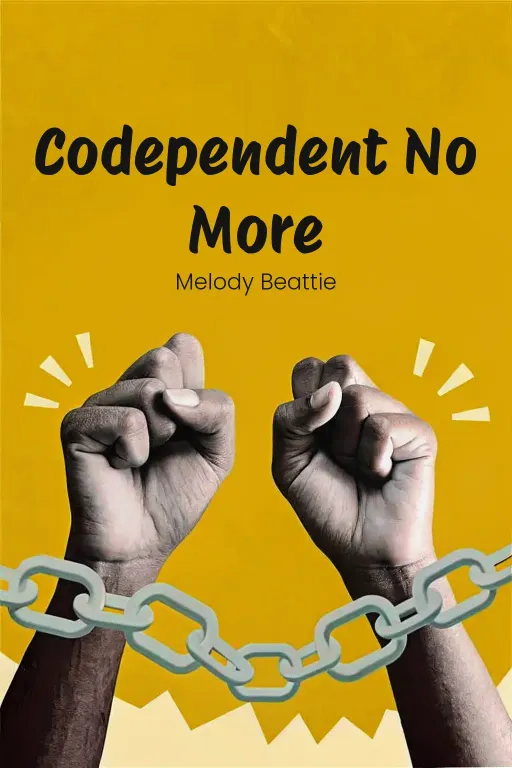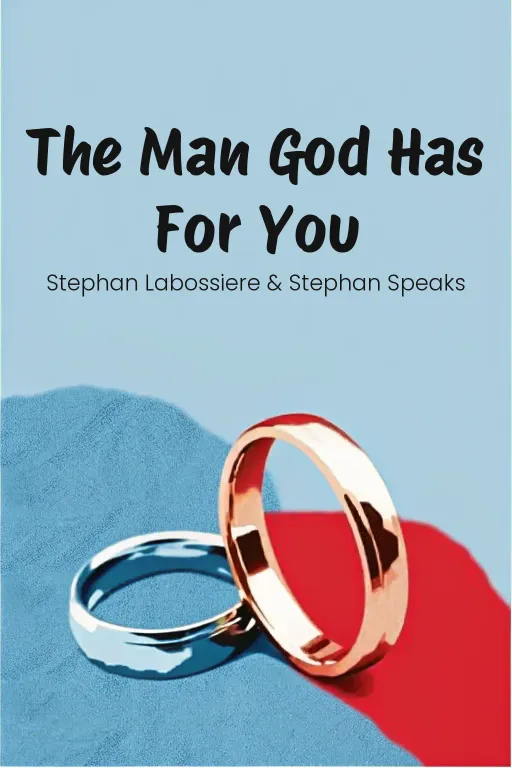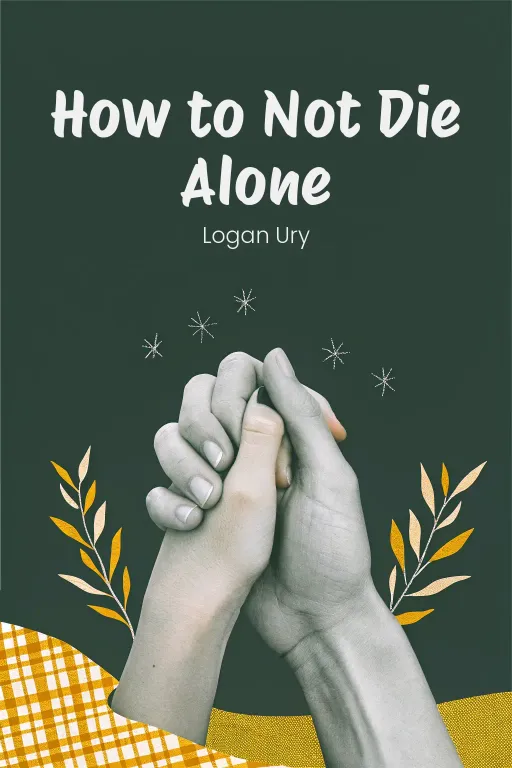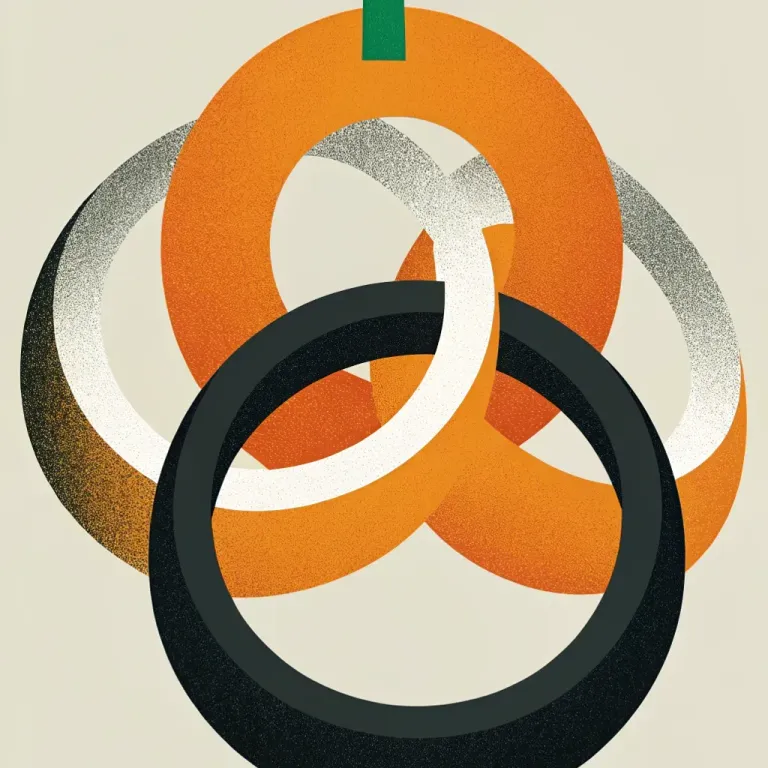
Sole Mate Search: Build a God-Centered Love
Podcast by The Mindful Minute with Autumn and Rachel
What If It’s Not about Who You Marry But Why?
Sole Mate Search: Build a God-Centered Love
Part 1
Autumn: Hey everyone, welcome back! Today, we're tackling a big one: choosing a life partner. And honestly, whether you're single, dating, or even married, this conversation is for you. It's about so much more than just romance, it's about purpose, about faith, and building a life that “really” matters. Rachel: Exactly, because let's be real, who you choose to share your life with is one of the biggest decisions you'll ever make. But, Autumn, I have to ask, are we chasing this Hollywood fantasy that might actually be leading us down the wrong path? Autumn: That's such a great point, Rachel. The book we're talking about today “really” challenges those popular ideas about love. Instead of searching for a "soul mate," it introduces this concept of a "sole mate"—someone who aligns with your values, your character, and your overall mission. It's less about those butterflies and more about building something truly sacred and lasting. Rachel: Right, so less "you complete me," and more "you complement the work I'm called to do." This book isn't just about the ideals, though, it gives you some “really” practical tools to navigate the, let's say, interesting world of modern relationships. Autumn: Exactly! And that's what we want to dive into today. We've broken down this topic into five key areas. First, we'll explore the "why" behind marriage, it's deeper meaning and spiritual purpose. Rachel: Okay, then the fun part –choosing the right partner. Spoiler alert: it's less about the initial spark and more about who shows up when things get tough. Autumn: Then, we'll talk about what it takes to keep a marriage vibrant –from healthy communication to “really” respecting each other. Rachel: And of course, we have to go back to the source, the Bible, to debunk some of those myths we have about love and marriage, and “really” highlight what covenant love looks like. Autumn: And finally, we’ll wrap up with some actionable strategies for building relationships that can not only weather any storm, but also bless you and those around you. Rachel: So, whether you're looking for some clarity in your dating life or some wisdom for your marriage, stick around. We've got a lot to unpack that could “really” change how you see things.
Understanding the 'Why' in Marriage
Part 2
Autumn: Okay, so picking up where we left off, let's “really” focus on the "why" behind marriage. This is so fundamental, isn't it? People often jump straight to the "who" or the "how"—who's the right person, how do we find them—but if your "why" isn't solid, the rest can just fall apart. It's this deep understanding of why marriage exists that determines whether it's a blessing or a “real” struggle. Rachel: Absolutely, and I think a lot of people completely bypass this step, to be honest. It’s like buying some sports car because it looks cool and goes fast without even considering, "Wait a minute, what do I actually need this for? Is this even practical for my life?" Except, you know, with cars, the stakes are a little lower. Marriage is on a completely different level. Autumn: Exactly. And we can't ignore the spiritual basis here. Biblically, marriage isn't just about love, companionship, or even raising a family. It's about partnering for a bigger mission, aligning with God's Kingdom purpose. It’s a reflection of His relationship with the everyone, full of sacrificial love and mutual service. Rachel: Okay, but here's what I’m always wondering...how do we balance that ideal with the reality that people also want, you know, human connection—a best friend, someone to share not just the God’s work, but the little joys of life? I think the big challenge for many is how to bring those two desires together without one overshadowing the other. Autumn: That's such a good point, Rachel. And I think understanding intentionality in marriage is key to finding that balance. Intentionality means making a conscious choice—not just based on attraction or chemistry, but on a deeper understanding of shared values, purpose, and spiritual direction. Rachel: Right. And that brings me to that story you mentioned about the pastor who described his marriage as a cross. I mean, that “really” hits home. Marriage as a cross? That's a level of burden people don't usually equate with a happily-ever-after scenario. Autumn: It does hit hard, but it's also a necessary dose of reality. This pastor went into marriage because he loved God and believed marriage was part of his calling, but he admitted—likely in retrospect—that he hadn't fully considered whether his relationship would support, or maybe even challenge, his Kingdom work. He stayed committed to his vows, which is admirable, but his experience highlights why intentionality matters so much from the start. Marriage isn't something you just stumble into; it's a choice that needs foresight and wisdom. Rachel: And yet, I think people avoid asking those tough questions before marriage, don't you think? I mean, nobody wants to look at their partner and say, "Hey, could you potentially make my life harder or distract me from my purpose?" But that's essentially the question we need to wrestle with. The stakes are huge, and the consequences of choosing poorly can last a lifetime. Autumn: That’s so true. It’s not romantic, but it’s “real”. Intentionality forces us to ask, “Why am I doing this? Is it to glorify God and serve others, or is it about filling my own unmet needs, maybe even at the expense of my larger purpose?” Rachel: Which brings us to this whole cultural obsession with "soul mates." No pressure, but apparently, there's "the one" out there for every person—mess that up, well, good luck. How much damage do you think that concept has done to how people view relationships? Autumn: Oh, so much damage! The "soul mate" idea is incredibly romantic, but also “really” misleading. It sets people up for disappointment because it creates this unrealistic expectation that love is predestined and effortless. But the biblical model flips that script. It’s less about “the one” and more about partnering with someone who shares your mission and values—what the book calls a “sole mate.” Rachel: That's such an important shift in mindset—"sole mate" as in sole purpose, not some magical cosmic pairing. And the story of Rowdy and Anna “really” illustrates that, doesn't it? I mean, they clearly loved each other, but their paths just weren't aligned. Autumn: Exactly. They both had distinct callings from God—Rowdy’s in inner-city mentorship and Anna’s in suburban schools—and as much as they cared for one another, they realized their missions couldn't coexist in the way a marriage requires. So, they made the difficult choice to go their separate ways. Rachel: That's gotta be tough, though. You're basically saying, "I love you, but love isn't enough." How do you even come to that realization? Autumn: It takes maturity and a lot of prayerful discernment. Rowdy and Anna approached their relationship with intentionality—they recognized that shared love wasn't the same as shared purpose. And when they ended the relationship, they both found fulfillment in pursuing their individual callings. What’s so powerful about their story is that sometimes, love looks like letting go so that both people can thrive in the ways they’re meant to. Rachel: That's a good takeaway: love isn't just about holding on. Sometimes, love is stepping aside. But let's shift to a more internal focus now. Even before anyone gets to the Rowdy-and-Anna stage, they need to do the hard work of personal responsibility. Let's be honest—if someone walks into marriage hoping it'll fix their loneliness or somehow make them whole, they're setting themselves and their partner up for disappointment. Autumn: Absolutely, personal responsibility is foundational. It’s about being honest with yourself—asking, “Am I seeking marriage for the right reasons? Or am I bringing superficial motivations, like societal pressure or fear of being alone, into this decision?” Rachel: And can we talk about "pity marriages" for a second? Like marrying someone because you feel bad about breaking their heart? That’s just a recipe for resentment for everyone involved. Autumn: It “really” is. It dishonors both people, because marriage should be a platform for mutual growth and glorifying God—not a solution to guilt or external pressures. Taking responsibility for your decisions means reflecting deeply, seeking wisdom from mentors, and aligning your “why” with a desire to partner in Kingdom work. Rachel: Okay, so if we're looking for practical steps here—how does someone actually align their "why" with God's purpose? Autumn: First, prayer is essential. Individual and communal prayer “really” helps clarify our motivations and invites God into the decision-making process. Second, mentorship is invaluable. Getting perspectives from people who are living out healthy, God-centered marriages can provide clarity and wisdom. Rachel: And don't forget those tough self-reflection questions: Why do I want to get married? Is it rooted in God's purpose or societal expectations? Autumn: Exactly. And having open conversations with trusted friends or family who know you well can reveal blind spots in your thinking. Rachel: So, bringing it all together, the "why" of marriage requires intentionality, a shift from cultural ideals to Kingdom purpose, and a willingness to own your motivations. It's not easy, but it's the difference between a relationship that thrives and one that struggles to survive. Autumn: And when we understand this, we lay the spiritual and philosophical groundwork for every practical step that follows—choosing the right partner, navigating challenges, and ultimately building a marriage that reflects God’s love and grace.
Choosing a Partner Wisely
Part 3
Autumn: So, after laying the groundwork on “why” get married, it’s a natural progression to discuss “how” to choose a partner wisely, aligning with those core principles. Building on that "why," this gives us actionable steps on the "who," making sure our choice supports that deeper purpose we talked about. I think the most foundational idea here is choosing someone based on character, not superficial stuff. Rachel: That's easier said than done, isn't it? We live in this world obsessed with first impressions. The “spark,” chemistry—it's all about that initial feeling, right? We're kind of programmed to notice the outside first. So, how do we actually shift our focus to what's on the inside? Tell me that! Autumn: Well, it starts with redefining what we value. Appearances and chemistry might grab our attention, sure, but they don't sustain anything long-term. Qualities like integrity, humility, and kindness—those are the things that “really” matter. Assessing those traits, though, that takes time and real effort. Rachel: It’s not just about time, though, is it? It's about really paying attention. Remember that story about the guy who was charming in public but rude to the waiter? That always stays with me. It's a small thing, but it says so much. Autumn: Exactly! How someone treats those who can't do anything for them is so telling. If their kindness is only for people they want to impress, what happens when they don't need to impress you anymore? Those little unguarded moments reveal who they really are. And it's not just waiters, right? Watching how they interact with family or handle disagreements with friends can be just as revealing. Rachel: Okay, but what if someone aces the "kindness test" but later you see they lack maturity in other areas? Like, work ethic or emotional stability. Are there other warning signs we should be looking for? Are there any other signs we should watch for? Autumn: That's a great point! It's not just about kindness in a vacuum. You’re also looking for things like reliability, humility, and emotional resilience. How do they handle stress? Do they own up to their mistakes? Looking at their life patterns – how they approach work, handle money, or deal with setbacks – gives you a clearer picture. The key is looking for a consistent pattern, not just isolated moments of "good behavior." Rachel: Right, patterns, not perfection. Got it. Okay, next up: infatuation. Probably the sneakiest thing that clouds our judgment. That dopamine rush makes everyone look like a supermodel, right? Autumn: Oh, absolutely. Infatuation is so tricky because it feels so real, so overwhelming. It can totally blind you. Science says that high usually lasts between 12 and 18 months! So, if you're not careful, you could make some really big decisions based on a temporary feeling. Rachel: Exactly, what I call "the chemistry trap." Remember that story about the woman who started a relationship purely on physical attraction? That’s a perfect example. The spark was there, but long-term compatibility? Not so much. Autumn: Right. Turns out, her partner lacked ambition and didn't share her values. Those cracks—which she ignored because of the initial high—eventually broke the relationship. It's a good reminder, Rachel, that chemistry, no matter how strong, doesn't replace true compatibility. Rachel: So, slowing down is key, right? Giving yourself time to see past the hormones and really evaluate the relationship? Autumn: Exactly. Patience is so important here. That's why healthy dating involves watching over time. Let those butterflies settle so you can see your partner objectively. And involve people you trust—mentors, friends—because they often see red flags you're too caught up to notice. Rachel: Speaking of patience and effort, let's talk about being proactive in relationships. This feels super relevant today when so many people seem to be waiting for love to magically appear. Autumn: It's such a common thing, isn't it? There's this passive attitude where people just assume God will drop the perfect person in their laps. But relationships, like anything worthwhile, take effort. Taking steps—joining church groups, volunteering, expanding your social circle—creates opportunities to meet like-minded people. Rachel: That example of the guy who chose a college based on the community’s values really sticks with me. It's almost backwards! You'd think you'd pick a school for academics, but he prioritized being around people who shared his values. Autumn: And look at the difference it made! By choosing wisely where to invest his time, he increased his chances of meeting someone aligned with his purpose. This proactive approach is exactly what Steve Watters was talking about: people who marry well aren’t just lucky—they're intentional. Luck, if you can even call it that, comes from those wise choices. Rachel: But hold on a second. "Laziness in love." I hear people say, "If God wants me to marry, He'll make it happen." That's just an excuse to do nothing. Autumn: It's so true. That passive mindset just leads to frustration because it takes away personal responsibility. God calls us to be wise and intentional, not to sit back and wait. Faith requires both trust and action. Rachel: Okay, so we've covered values, effort, avoiding infatuation. Now, the million-dollar question: once you do all this, how do you actually prioritize compatibility in values and mission? Because even when two people love God and seem aligned on paper, it doesn't guarantee it'll work. Autumn: That's where those deep, honest conversations come in. It's not just about surface-level compatibility; it's diving into key areas like life goals, faith, and even lifestyle preferences. Think about the couple where one wanted a rural life, the other a city life. Despite their love, those differing visions pointed to incompatibility. Rachel: And having those conversations sooner, rather than later. Better to face those hard truths up front than ignore them, hoping love will fix everything. Autumn: Exactly. When couples avoid those deeper questions, they risk building on shaky ground. But when done thoughtfully—with prayer, mentors, and reflection—those conversations can strengthen a relationship by confirming that the foundation is solid. Rachel: So, to wrap this up, choosing a partner wisely is really an act of faith and preparation. It's about seeing through the superficial, resisting infatuation, putting in the effort, and aligning deeply in values and purpose. Autumn: And when you approach it with that kind of intentionality, it's so much more than just a relationship – it's a partnership that honors God, strengthens individuals, and makes a real impact on the world.
Relationship Dynamics and Marriage Readiness
Part 4
Autumn: So, after figuring out how to choose a partner, the next thing is “really” understanding how to keep a marriage healthy and fulfilling. It's about having the right skills and mindset for the long haul. I think a good place to start is one of the most basic things: mutual respect. Rachel: Respect. Sounds easy, right? But let's be real, it's not always a piece of cake. I mean, being nice when things are going well, sure, that's easy. But what happens when you're under pressure or in a bad mood? That's when respect “really” gets put to the test. Autumn: Exactly, Rachel. Mutual respect is way more than just being polite. It's about truly valuing your partner, respecting who they are, and showing empathy, especially when you don’t feel like it. It's not just some nice idea; it's completely essential. Without respect, even the strongest relationships can turn sour over time. Rachel: It reminds me of this story about this guy who was super charming with his girlfriend but treated people he thought were "below" him—like waiters or service staff—really badly. Total red flag, right? Autumn: Absolutely. It “really” shows you that how someone treats people they don't need to impress is probably how they'll treat you once the honeymoon phase is over. His girlfriend probably ignored it at first, focused on how great he was to her in the moment. But eventually, those little signs of disrespect start to reveal the real person. Rachel: Right? I mean, if they’re rude to a waiter, what happens when they stop trying to impress you? It makes you wonder how many people see those red flags early on but think, "Oh, it's not a big deal," until it's too late. What's the best way to avoid that trap? Autumn: Watch how they act in different situations. It's not just about how they treat you, but how they treat strangers, their family, coworkers, even their close friends. Those everyday moments can tell you a lot about their character. It helps you see if respect is “really” a part of who they are or just something they put on when they need to. Rachel: Okay, so let’s say you both have the respect thing down, which is great, but respect doesn't solve everything. That's where communication and dealing with conflict come in. And let's be honest, communication problems are probably a top reason why marriages fail, right? Autumn: Oh, definitely. Communication is like the lifeblood of a marriage. It's how we share our feelings, work through problems, and build that close emotional connection. But it's not just about talking; it's about knowing how to handle disagreements in a way that actually makes the relationship stronger, not weaker. Conflict is normal; it's how we deal with it that “really” matters. Rachel: Alright, so let's talk about that couple from the story—the ones arguing about money. The wife was all about saving, and the husband was all about experiences. Sounds pretty familiar, right? But they made a breakthrough when they stopped trying to "win" and actually listened to each other. Autumn: Exactly. When they understood the emotions behind their money habits—like her need for security and his desire for enjoyment—they started working together instead of fighting. Their story shows how disagreements don't have to break you apart. When you handle conflict with respect and understanding, it can actually bring you closer. Rachel: Right, fighting doesn't have to mean fracturing. But let’s get practical. What do you do when you're in the middle of a “really” heated argument? How do you stop and switch from arguing to actually solving the problem? Autumn: First, practice active listening. That means “really” hearing what the other person is saying, without already thinking about what you're going to say next. Try summarizing their point to make sure they feel heard. It naturally makes them less defensive. Second, take a break. If things are getting too heated, step away for a bit before continuing the conversation. It gives both of you a chance to calm down and think clearly. Rachel: Okay, so no storming out, but also no ultimatums when emotions are high. It’s about pacing yourself and respecting your partner’s emotional state at that moment. Autumn: Exactly. It’s about finding a productive middle ground, which can turn a conflict into a chance to grow instead of something that divides you. Rachel: Sounds good, but let's be clear: not every relationship problem is just a conflict resolution issue. Sometimes, it's about seeing—and dealing with—red flags before things get serious. This is tricky because nobody wants to admit they're dating someone with red flags, let alone break up because of them. Autumn: It's so true. Red flags can be easy to ignore, especially when you're infatuated or emotionally invested. But you have to address these issues early because they don't magically disappear after marriage. Things like dishonesty, emotional immaturity, or not wanting to grow—those tend to get worse when you're dealing with the stresses of married life. Rachel: Right, like that couple who dated for six years, and the guy dodged every single conversation about marriage. At what point do you stop waiting and say, "This isn't just being cautious; this is avoidance, and it's not fair to either of us"? Autumn: That woman showed so much courage. She talked to friends and mentors, and that helped her see that his reluctance wasn't about logistics; it was about a deeper lack of readiness or commitment. Ending the relationship was hard, no doubt, but it was her way of valuing herself and wanting a future built on honesty and shared goals. Rachel: And isn't that the tough part? Realizing that walking away isn’t a failure—it’s actually smart. If someone keeps showing you they're not ready, it’s better to move on than keep dragging things out. So how do you help people see and deal with those red flags before they invest six years? Autumn: Look for consistency between what they say and what they do. If they're always saying they love you but avoid talking about the future, that's a disconnect you need to address. Talk about it honestly; maybe even consider counseling. It can help you see if it's a temporary issue or a sign of a deeper problem. Rachel: Okay, and last big thing, let's talk about spiritual and emotional growth. We've talked about respecting your partner and spotting red flags, but what about doing your own work before getting married? Autumn: That's so important. Marriage isn’t about finding someone to “complete” you; it’s about two complete individuals coming together. Emotional and spiritual readiness sets the stage for that. When people seek fulfillment from God first, rather than from the relationship, they're freer to love selflessly and avoid becoming too dependent on their partner. Rachel: The couple in premarital counseling “really” nailed this. Both of them faced their own stuff—she had baggage from a past relationship, and he tended to avoid tough conversations. Instead of ignoring it, they turned to prayer, guidance, and self-reflection. That made them stronger as individuals and as a couple. Autumn: Exactly. Marriage isn't a fix for personal problems. It's a partnership that thrives when you build it on self-awareness, humility, and a strong relationship with God. Rachel: So, to wrap it up, keeping a marriage strong isn’t just about love; it’s about respect, good communication, watching out for red flags, and doing the hard but rewarding work of personal growth. Autumn: And when you intentionally work on those things, you can build a relationship that truly shows God's love and purpose—a marriage that not only lasts but also blesses everyone around you.
Biblical Principles and Frameworks
Part 5
Autumn: So, having talked about the ingredients for a healthy marriage, let's dive into how biblical principles can really enrich and guide those relationships. We're essentially grounding everything in timeless biblical wisdom, offering a spiritual perspective and practical tools to really “understand” marriage as it was originally intended. Rachel: Right. It feels like we're zooming out to see the "big picture." It's not just about finding "the one" or smoothing over disagreements—it's about seeing how marriage fits into this bigger, almost cosmic, story. I'm curious, Autumn, what do you think makes so many people skip over that biblical framework entirely? Autumn: Well, a lot of it is that our culture tends to frame love around the individual. It's all about how someone makes you feel, if they fit your preferences, how your needs are being met. The biblical view? It's a complete 180. Marriage isn't just a personal thing. It's about God's glory and His Kingdom purposes. If you lose sight of that, the whole foundation feels a bit… shaky, doesn't it? Rachel: Shaky indeed! Which brings us to something a lot of people seem to cling to: the "soul mate" myth. You know, the idea that there's this perfect someone out there, tailor-made just for you. Surely I’m not the only one who feels like it’s a bit of a…problematic trope? Autumn: Oh, it's everywhere, isn't it? This “soul mate” idea sets people up for unrealistic expectations. It's that constant questioning: "Did I choose wrong? Is someone better waiting out there?" But the Bible doesn't suggest a predestined perfect match. It emphasizes intentionally choosing someone who shares your values, your faith, and your sense of purpose. Rachel: So, switching gears from a soul mate, to a "sole mate," as the book puts it. Interesting. It shifts the focus from destiny and serendipity to shared goals and deliberate action. Autumn: Exactly! Think about Isaac and Rebekah in Genesis 24. Abraham's servant didn't stumble around waiting for a lightning strike. He prayed, defined specific qualities - generosity and servant-heartedness – and then he acted intentionally. When Rebekah met those criteria, the decision to marry Isaac was based on character, shared values, not some magical destiny. Rachel: No romantic music, no sweeping off their feet. Just… demonstrated servanthood, right? Seriously, let's just pause on that camel-watering detail. Offering ten camels water? That's not a whim, that's serious character! Autumn: Precisely, Rachel! It's an extreme example, sure, but it highlights the key point: When looking for a partner, prioritize enduring qualities like kindness, selflessness, and a willingness to serve. Rebekah wasn’t chosen for looks or a fleeting emotional spark, but for values that would sustain a God-centered marriage. Rachel: Okay, but someone's probably thinking, "Why isn't passion or connection enough? Why all this mission alignment?" Autumn: Because passion fades, and emotional connections can be… well, inconsistent. What truly sustains a marriage through tough times isn't how much you "click", it’s the shared purpose, shared values, the decision to work together for something larger than yourselves. Aligned on mission, your marriage becomes a foundation for glorifying God and serving others. Rachel: Right. And speaking of things that fade, I think we also need to tackle this cultural monster: focusing on appearances and that so-called "chemistry" over character. The 'gotta look good on my arm' mentality can be blinding. Autumn: So true. The Bible warns us about this repeatedly. Proverbs 31:30 says, "Charm is deceptive, and beauty is fleeting; but a woman who fears the Lord is to be praised." We’re called to look at the heart, not the surface. External things are temporary; character lasts a lifetime. Rachel: And there's the case in the book about the guy who married for looks and chemistry, only to find out later in life it wasn’t enough. At first, pure bliss, but as time marched on and so did the relationship, it became obvious that spiritual alignment and generosity were lacking. Over time, the charm and the good looks just couldn't compensate for the conflict and disconnection they faced. Autumn: Exactly! When you build your marriage on fleeting things like beauty or status, you're neglecting the deeper qualities, like trust, resilience, and intimacy. Marriage requires spiritual maturity, humility, and genuine character. Without those, even normal challenges can become really, really difficult. Rachel: Makes sense. So, how do you actually assess character early on? Fancy dinners and polished conversations don't exactly reveal someone's true colors, do they? Autumn: That's where thoughtful observation comes in – over time and across different situations. How do they treat service staff? How do they handle stress? Do they own their mistakes? Look for alignment between words and actions. And listen to mentors or trusted friends who might see red flags that you're missing. Rachel: You know, speaking of solid foundations, the story of Adoniram and Ann Judson is worth mentioning. They weren't just compatible; they had this rock-solid partnership built on mission and faith. It was so much bigger than personal happiness. Autumn: Absolutely. Adoniram and Ann were pioneers in American foreign missions, bravely going to Burma when it was incredibly dangerous. Adoniram's proposal to Ann was almost a stark reality check. He spelled out the trials she'd face if they married. Not romantic, just… honest. But they chose it, because their shared mission was greater than their own comfort. Rachel: They faced disease, persecution, imprisonment… things most of us can't even comprehend. But their story highlights the incredible strength that comes from marrying for a Kingdom purpose. They were co-laborers, totally dedicated to glorifying God, above all else. Autumn: The Judsons remind us how important it is to align with someone whose calling complements your own. When marriage is rooted in more that self-fulfillment, grounded in a shared covenant to serve God, it has a resilience and purpose that carries you through the toughest trials. Rachel: And what about that “covenant” itself? It's such a powerful word, Autumn. Everything these days feels like a transaction, but the Bible sees marriage as a covenant—something sacred and enduring. Autumn: Right! A covenant isn't just a contract; it's a lifelong, sacrificial commitment. It's choosing to serve and love your spouse even during hard times, mirroring Christ's love for the church. The modern view of marriage leans toward convenience or personal fulfillment, but the covenantal view is God's design: permanent and deeply sacrificial. Rachel: And I think the real challenge for so many of us lies in shifting that mindset. Moving from "What can I get out of this?" to "How can I serve and glorify God through this relationship?" That simple shift could really change the way we approach love and marriage. Autumn: Exactly, Rachel. At the heart of this is a challenge to remember the holiness of marriage, not as something we enter into lightly, but as a union that reflects God's love, calls us to grow as people, and serves a purpose beyond ourselves. When we approach it that way, it transforms not just our relationships, but us.
Practical Applications for Building Relationships
Part 6
Autumn: Okay, we've really built a solid foundation talking about the spiritual and philosophical side of relationships. So now, let's dive into where the rubber meets the road: how do we actually “apply” all this to building and nurturing relationships? How do we make these ideals a reality? Rachel: Exactly, Autumn. It’s one thing to say, "Look for alignment" or "prioritize character," but how do you do that? How do you turn those words into actions? I mean, how do you ensure these principles aren't just something we discuss, but habits we actually live by? I think that's what people are really wondering. Autumn: Agreed. So, let's start with intentional pursuit of compatibility. Now, we're not just talking about liking the same movies or sports. This is about aligning your core values, your faith, your long-term goals. Without that deep foundation, surface-level attraction will only get you so far, right? Rachel: Right. Although, let's be honest, Autumn, the word "compatibility" can feel pretty…fuzzy. Like a buzzword. I guess what I’m asking is, what does compatibility really look like in practice? How do you actually identify it, especially early on? Autumn: That's where being intentional comes in. Remember that couple we mentioned who mapped out their vision for marriage? They didn’t just assume they were on the same page; they asked really specific questions. How would they spend their evenings? What role would faith play in their family? Even vacation planning revealed different expectations. By clarifying those assumptions, they worked towards alignment. Rachel: So basically, they tackled the "everyday stuff" head-on, right? I bet a lot of couples skip that part, figuring, "We'll figure it out as we go." But that seems like a recipe for disaster when those unspoken assumptions clash later on. Autumn: Exactly! Those little misunderstandings about daily routines and priorities? They can blow up into major issues if you don't address them. That's why, you know, one of the most practical things a couple can do is sit down, answer those detailed questions separately, and then compare notes. It turns this vague idea of compatibility into a real, actionable conversation, right from the start. Rachel: Okay, I like that. But going back even further—before you even start those conversations—what about preparing yourself for a relationship? I mean, you can't really look for compatibility if you don't even know what you're looking for, right? Autumn: That's the heart of it, Rachel. It's not just about finding the right person; it's about being the right person. People get so focused on what they want in a partner, but they neglect their own spiritual, emotional, and relational readiness. And as we said before, humility, communication, conflict resolution – those aren't optional extras, they're the foundations. Rachel: Humility is key. People really underestimate its impact, I think. It's not just about saying sorry when you mess up; it's about approaching the whole partnership with respect and a willingness to change. Like that newlywed couple who fought about finances, for example. Autumn: Exactly! Early on, their different approaches to money caused tension. The real breakthrough came when they were both humble enough to admit the emotional roots beneath their habits. She was driven by security, he was driven by joy. From there, they worked together to create a budget that honored both perspectives. Rachel: Yeah, and let's be honest, aspiring to humility isn’t exactly glamorous when you're single, is it? But it's the one thing that keeps relationships solid. It turns potential arguments into opportunities for growth, not just battles to win. Autumn: Exactly! It breaks the cycle of blame. And when you combine that humility with good communication and conflict resolution skills? Those become rock-solid cornerstones of a healthy relationship. Rachel: That sounds great. But in practice, what if someone notices that, say, finances or important values are causing tension, but their partner just won't engage in those difficult conversations? What then? Autumn: That's a critical moment. If someone is avoiding open and honest conversations about core issues like money, future goals, or family expectations, that's a red flag, and it needs to be addressed before you go any further, you know? Transparency and a willingness to communicate are non-negotiable for any long-term relationship. Rachel: Speaking of compatibility... Let’s shift to a tougher topic, breakups. Sometimes, despite your best efforts, you just realize that the compatibility isn't there. And let’s be honest, the way most people handle breakups is pretty messy: ghosting, dragging things out of guilt... What's the right way to navigate such a painful process? Autumn: Breakups are never easy, but you can handle them with grace, respect, and clarity. Think about Rowdy and Anna. They really cared about each other, but they realized their different paths—inner-city ministry for him, teaching in the suburbs for her—just made a shared future impossible. Instead of clinging to the relationship out of fear or because they felt obligated, they prayerfully parted ways, prioritizing God's purpose for their individual lives. Rachel: I appreciate how their story avoids that temptation to "try to make it work" even when the deeper alignment just isn’t there. So, what’s the framework for ending things in a way that honors both people? For someone going through that right now? Autumn: Start with respectful communication. Be honest but kind: focus on why the relationship isn’t compatible, without resorting to blame. Give clear closure; phrases like "taking a break" create unnecessary ambiguity and false hope. And finally, own your decision. Avoid vague platitudes about God leading you away without any real clarity. It's about honoring the other person, even in that difficult moment. Rachel: That's good advice, Autumn. Let's shift gears to something more positive: building a shared mission in your marriage. I think that ties everything we've discussed together. How can you and your spouse not just survive, but thrive, by anchoring yourselves in a greater purpose? Autumn: A shared mission is what turns a good marriage into a great one. Think about the Judsons. Their marriage wasn’t about personal comfort or indulgence, but about their shared devotion to God's calling. Following that calling together gave their union extraordinary depth and resilience, even when they faced immense challenges. Rachel: Okay, let's simplify that for couples just starting out. Not everyone is going to be Adoniram and Ann Judson, right? How do ordinary couples find and pursue a mission that’s meaningful and that sustains their relationship? Autumn: It starts by linking your personal passions with shared goals. If one of you loves mentoring young people and the other loves teaching, your mission might be to serve youth together through your church or community. The key is to intentionally decide what you want to build as a team, rather than living separate lives under the same roof. Rachel: So, it's about making intentionality a habit. It's not just about ministry or your family life, but also about how you spend your weekends, right? That way, your daily life reflects the larger mission you've chosen together. Autumn: Exactly. And when life inevitably throws you curveballs, that shared mission becomes a source of unity and strength. It pulls you closer instead of driving you apart. It roots your relationship in something bigger than yourselves. Rachel: I think that’s a perfect takeaway. These ideas – pursuing compatibility, preparing intentionally, navigating breakups with grace, and uniting around a shared mission – these aren't just abstract concepts. They’re real, actionable steps that can transform dating and marriage. Autumn: Absolutely! And when we live out these principles every day, they lead to relationships that embody not just love, but purpose, faith, and resilience. That’s the legacy we’re called to build – one that glorifies God and impacts the world around us.
Conclusion
Part 7
Autumn: Wow, we really went deep today, didn't we? From figuring out the “why” behind marriage itself, to smart partner choices, keeping things afloat with respect and talking it out, and yeah, really grounding it all in biblical truth. The big takeaway? Being intentional. Like, whether you're dating, working through a fight, or building something together, really focusing on aligning your relationship with God's plan, well, it just changes everything. Rachel: It all boils down to this, right? Marriage isn't just about finding someone who makes you feel good. It's about building something that honors God, helps other people, and makes both of you better people. And that means work, knowing yourself, and really focusing on who someone is and what they stand for; not just how you feel in the moment or what society tells you to want. Autumn: Exactly! So, whether you're single, dating, or married, the challenge is really to look at relationships through that lens, through God's eyes. Ask yourself, "What am I building here? Who am I becoming in this relationship? Does this relationship actually show God's love and purpose?" Rachel: So, bottom line: don't just go with what everyone else is doing or settle for something shallow. Instead, aim for that kind of intentionality and faithfulness that builds a partnership with a real purpose. Start today, you know? Take a good look at yourself, your choices, and what a truly God-centered relationship could even look like for you. Autumn: And, you know, the ultimate goal isn't just a great marriage. It's living a life that makes God look good while also making life better for other people. When we approach relationships with that in mind, we're basically aligning ourselves with the greatest love story ever. Rachel: Alright, let’s wrap it up here. Thanks for tuning in, and we’ll catch you next time for more Sacred Conversations.
